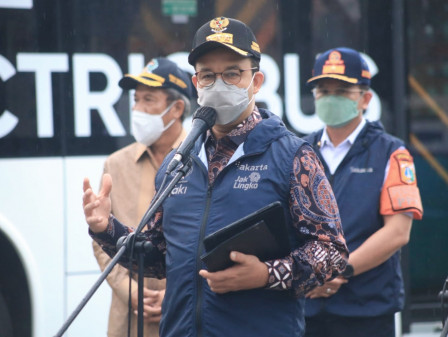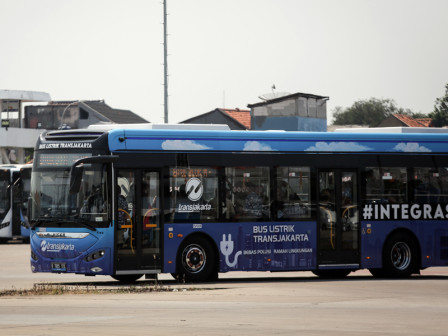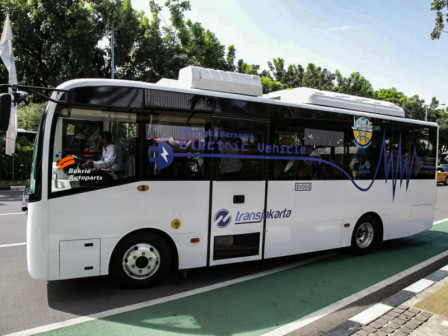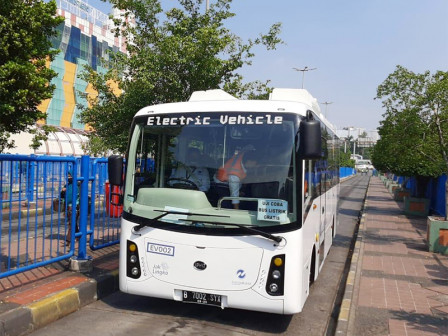Jakarta Officially Launches Transjakarta Electric Bus
Reported by Anita Karyati | Translated by Nugroho Adibrata
Through PT Transjakarta, the Jakarta administration officially launched 30 electric buses.
In 2030, we hope all buses in Jakarta can operate with electricity
"We also plan to add 100 buses by the end of this year. It is part of the piloting that we are working on. In 2030, we hope all buses in Jakarta can operate with electricity," said Jakarta Governor, Anies Baswedan, on the sidelines of launching the Transjakarta Electric Bus at Monas Plaza, Tuesday (3/8).
According to him, it was realized, as the two mobility problems in Jakarta were caused by the very high activity of motorcycles.
Jakarta e-Mobility Event, Governor Commits to Electrify Public Transport Fleets"This is capable of reducing carbon emissions and the use of private vehicles in Jakarta, which means that the problem of congestion remains a challenge," he expressed, as quoted by Jakarta PPID's press release.
Based on the report of the UN Intergovernmental Panel on Climate Change (IPCC) 2022, efforts need to be made to accelerate the transition towards net-zero emissions. Jakarta itself has included the plan for electrification of Transjakarta buses and fleets in the Gubernatorial Regulation number 90/2021 on the regional low-carbon development plan that is climate-resilient.
"So, this initiative is part of Indonesia's commitment to contribute to humanity's efforts to save the universe by reducing air pollution. We hope people will be more aware of the importance of environmentally friendly technology and our efforts to reduce carbon emissions in this city," he asserted.
He underlined that the launch of the Electric Bus is something that has been done jointly since 2018, by international institutions and support from the private sector. "We work together with 4 international institutions, we partner intensively. Among them are United Nations Environment Programme, UNEP, Climate Technology Center and Network, C40 Network, and British Embassy. Thank you and appreciation for the collaboration," he explained.
"And also the private sector which has encouraged electric buses to develop an electric-based vehicle industry. Hope it will be Indonesia's advantage in the international world because we have natural resources as material for electric-based vehicle batteries," he explained.
Aside that, the bus itself has advantages, namely noise pollution on electric buses which have the potential to decrease by 28 percent compared to diesel buses, CO2 emissions in electric buses' exhaust gases can be reduced by 50.3 percent, and the energy efficiency level of electric buses has a potential of five times higher than that of a diesel bus.
On the other hand, PT Transjakarta President Director, Mochammad Yanan Aditya added that it also has a battery capacity of 324 KwH with a distance of up to 250 kilometers or 17 hours of operation, including fast charging for 1.5 hours.
"All brands of electric buses used by Transjakarta have been tested for all criteria," he added.
As for the information, as the initial stage, the operation of electric buses would be focused on non-BRT routes, such as 1P: Senen Bus Terminal – Bundaran Senayan; 1R: Tanah Abang – Senen Bus Terminal; 1N: Blok M – Tanah Abang; and 6N: Ragunan – Blok M.





